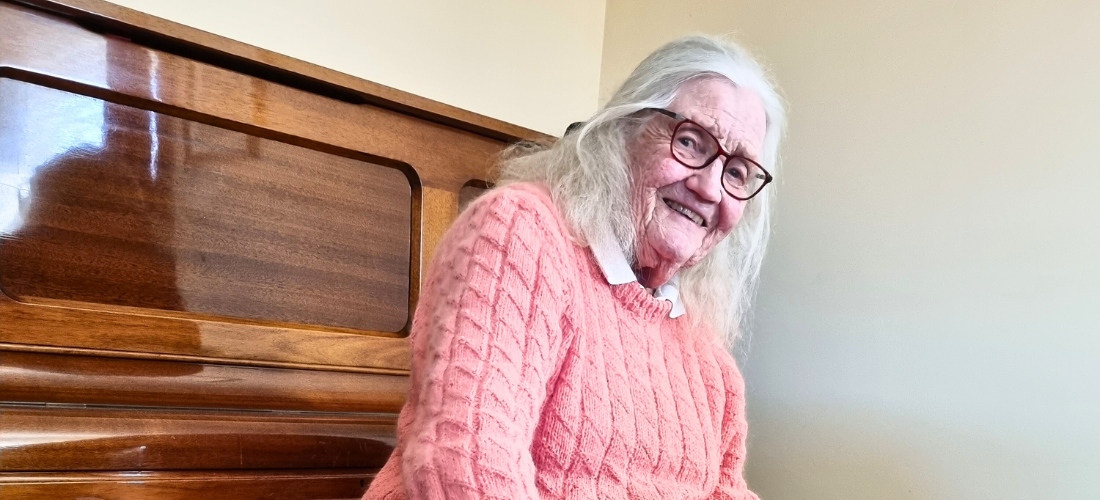Macular Degeneration Awareness Week
Sunday 25 to Saturday 31 May 2014
Only one per cent of Australians over the age of 50 knew about the Amsler grid – a simple self-test to monitor for symptoms of age-related macular degeneration, the leading cause of blindness and severe vision loss in Australia. Furthermore only 68% admitted to having never seen an Amsler grid before according to a recent survey by the Macular Disease Foundation Australia.
Commenting on the survey findings, MDFA Chief Executive Officer Julie Heraghty said, “The most important thing for all those at risk of macular degeneration is to have an eye test and macula check. In addition, you should also use an Amsler grid to monitor for changes in vision and test for possible symptoms between visits to an eye health professional.
It is concerning that so few Australians are aware of this simple at-home testing tool.
Julie Heraghty
When using the Amsler grid, if you notice any sudden changes in your vision, if you see straight lines appearing wavy or bent, or dark patches or empty spaces in the centre of your vision, you need to make an urgent appointment with your eye health professional, as early detection can save sight.
Macular degeneration is the leading cause of blindness and severe vision loss in Australia with more than 1.15 million Australians over the age of 50 having some evidence of the disease. Without appropriate prevention and treatment measures, this number is set to increase to 1.7 million by 2030, due to the rapidly ageing population. Risk factors for macular degeneration include being over the age of 50, a direct family history, and smoking.
This Macular Degeneration Awareness Week the Foundation is urging all Australians over 50 to use the three-step approach for early detection of macular degeneration:
- Test the eyes and macula as early detection can help save sight
- Monitor for changes in vision – don’t dismiss these as a part of getting older
- Respond to changes to your vision with an urgent appointment with your eye care professional
The survey also revealed that 75 per cent of respondents were unaware certain nutrients could contribute to good eye health. Interestingly, only four per cent knew that the antioxidant lutein was important for macula health which is found in dark green leafy vegetables such as spinach, kale and silver beet.
“Follow an eye health diet and lifestyle including fish 2-3 times a week, dark green leafy vegetables and fresh fruit daily, a handful of nuts a week, choose low GI foods and limit your intake of fats and oils. Exercising, maintaining a healthy weight and not smoking are also essential. Smoking increases your risk of developing the disease by 3-4 times and can lead to blindness, so quitting is critical,” said Ms Heraghty.
A supplement can be very important in reducing risk and progression of disease and this along with any changes in diet and lifestyle should be undertaken in consultation with your doctor.
“We want every Australian with, or at risk of, macular degeneration to take control of their eye health this Macular Degeneration Awareness Week. This is by having an eye test and macula check, using the Amsler grid between visits and adopting an eye health diet and lifestyle program,” said Ms Heraghty.
An Amsler grid kit is available free from MDFA.
How can you be involved in the awareness week?
- Remind friends and family that a direct family history of macular degeneration brings a 50 per cent chance of developing the disease and that it is essential for those over 50 to have an eye test and make sure the macula is checked.
- Encourage friends and family diagnosed with macular degeneration to contact the Foundation to ensure they receive ongoing information and support.
- Address your local council or meet the mayor to discuss ways the local area could be improved for those with vision loss.
- Encourage local media to promote Macular Degeneration Awareness Week. You may like to share your story.
- Organise a fundraising event through your local community or social club.
- If you belong to a community service group, such as Rotary or Probus, hold a community event using information flyers available from the Foundation.
- Ask a local optometrist to speak about macula health at your community group meeting.
Posted: 25 May 2014
















